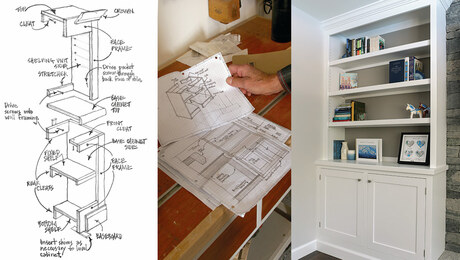In the never ending quest to lower my electric bill, I have been thinking of buying a dehumidifier, with the thought that with low humidity in the place, the A/C won’t have to work as hard.
1 bdrm, no clue as to the s/f, but it’s small, it’s one half of a duplex, concrete, windows only 4 yrs old & close tight. No vent in bathroom but I do put the fan in the doorway aiming to the open window when I use the shower. Ummmm, one wall unit A/C. Windows kept closed all day, blinds closed too. Only run the A/C when at home- morning & after work- goes off at bedtime. What else? Oh yeah, I’m in a slightly humid place- Orlando. LOL
TIA
















Replies
A typical dehumidifier will generate heat as it works.
In addition to having to spend money to buy one, it will add insult to injury by heating up the place as it dehumidifies.
Window A/C units these days are more efficient with better controls. Some of them even come with, thermostat, timer and remote control. You may want to shop around and see what's available. There are also floor standing units that has vent tubes that channel the hot air outside.
Are your concrete walls (or whatever it is) sealed with some sort of barrier paint or coating ?
Is your unit below grade ?
A dehumidifier is essentially a refrigerator without a box to stick the milk in. I believe they are generally expensive to run, as most refrigerators are.
I don't know if there is a net gain of heat from them, but I strongly suspect that, as already noted, you're better off using you A/C to dehumidify - getting dual use from the same refrigeration cycle (dual since the A/C moves heat from insdie to outside while it also dehumidfies - and A/C unit is also a frig without a place for the milk).
_______________________
10 .... I have laid the foundation like an expert builder. Now others are building on it. But whoever is building on this foundation must be very careful.
11 For no one can lay any other foundation than the one we already have--Jesus Christ.
1 Corinthians 3:10-11
In general a lot more of the energy is used to remove the humidity then to cool the air.
What you need to do is to get a humidity meter for inside the house and also learn to read the electrical meter.
It is probably cost you MORE to shut the air off during the day.
Specially if you are open the windows.
You are probably much better of getting an electronic setback thermostat and running the AC at maybe 80 during the day.
In general a lot more of the energy is used to remove the humidity then to cool the air.
Bill, as a side note, does that mean that I will get a lower A/C temperature delta on when the humidity is higher?
_______________________
10 .... I have laid the foundation like an expert builder. Now others are building on it. But whoever is building on this foundation must be very careful.
11 For no one can lay any other foundation than the one we already have--Jesus Christ.
1 Corinthians 3:10-11
Bob
"Bill, as a side note, does that mean that I will get a lower A/C temperature delta on when the humidity is higher?"
I *think* so.
It has been almost 40 years since I had thermodynamics and that was based on gernic systems and not real world design. I am not sure what affect the temperature controlled expansion valves have.
The extra work required to condense the mositure has to be reflected in either less cooling of the air or reflected back as an increased load on the motor and thus higher power consumption.
This summer I had to get the AC serviced and did not run it until it was done and that was the after it had gotten hot and humid.
The guy has it almost filled when he ran out of freon. So it ran for about 45 minutes while it got some more.
In that time the humidity level dropped about 5 points, but the room temp did not budge.
Appreciate all the info. Thanks for saving me the $ on the dehumidifier!
But, but, its SUPPOSED to taste like that!
Bob,
What he is kinda refering to is the fact that the average air conditioner evaporator coil is only 2 or 3 rows deep and can only remove so much energy at a time. The energy absorbed by the refrigerant as water condenses on the coil, is energy that will not be removed from the air. Typically, at a given flow rate and face velocity, an evaporator coil will have a fixed capacity raitio of the latent (i.e. dehumidification) capacity to total capacity. So in a word, yes, this means that at higher humidity the temperature drop across the coil will be less, all other things being equal.
Tim
Tim, thanks_______________________
10 .... I have laid the foundation like an expert builder. Now others are building on it. But whoever is building on this foundation must be very careful.
11 For no one can lay any other foundation than the one we already have--Jesus Christ.
1 Corinthians 3:10-11
Where have you been? Thought you were MIA.
Welcome back.
Dave
Dave,
I am MIA and thanks for noticing. Just don't have the time anymore.
Tim